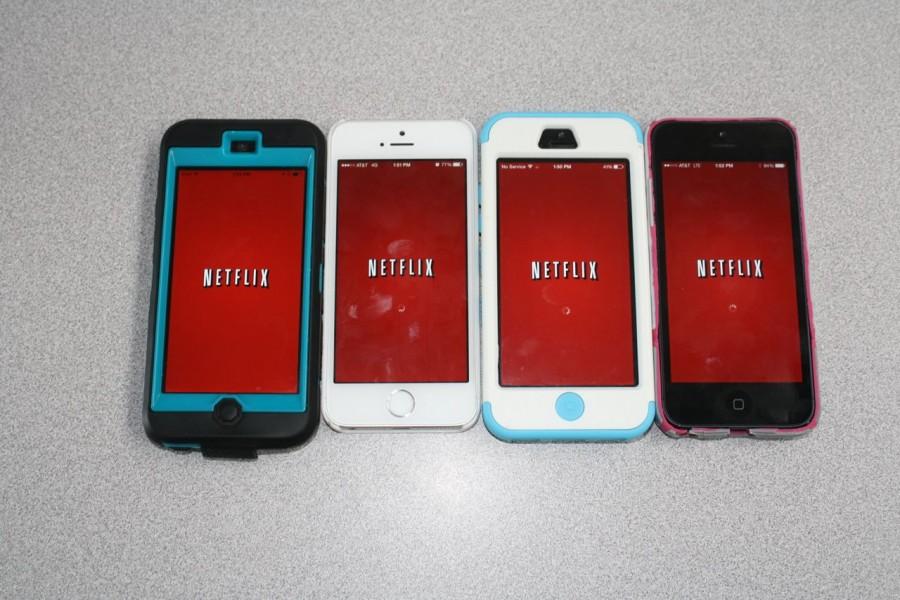Coffee is an unstoppable epidemic, as is fast food and even marijuana. We have developed highly addictive personalities that hooks us on trends and fads quickly and easily. But the most popular drug by far is the Internet, specifically the one website that makes up about 35% of all data usage on the web: Netflix.
The obsession began in 1997, when Netflix was formed as a home DVD delivery service. Since then, the company has begun streaming movies, TV shows, and original content through their website and has seen a tremendous increase in subscribership. By the end of April 2014, Netflix had acquired over 50 million subscribers in a total of 41 countries, and the number continues to rise.
The Netflix addiction began by consuming the younger generation who were used to using the Internet for extended periods of time. Young adults created the binge media culture beginning with “viral videos” on YouTube, resulting in the Netflix addiction. We spend hours upon hours isolated from society. We watch Netflix on our phones, computers, and TVs, and when we’re not watching, we’re thinking about the next time we will be watching. The question begs, is all the time we spend watching videos, TV shows, and movies time wasted?
I myself have spent 63 days of my life watching every episode of every season of a total of 17 shows according to http://tiii.me/, a website that calculates your total time spent watching tv shows. For over two months, I have entirely submerged myself into other peoples’ fictional lives. I have grown to love Peyton Sawyer and her phenomenal taste in music. I have felt envy and disgust towards Francis Underwood as he tirelessly works towards his goals, often stepping on those below him. My heart has pounded simultaneously with Jack Bauer’s as he fights for the justice and safety of the American people. I have created relationships with these characters despite their obvious fictional nature.
Most of us have experienced the addictive nature of a TV marathon. We often find ourselves in bed for hours with our laptops turned on their sides, our eyes glued to the screen as each end-of-episode cliffhanger reals us back in for “just one more.” The shows themselves are created to keep us coming back for more, with episodes often ending in tragedy, shock, or ambiguity. We give into this addiction because “Netflix” doesn’t have the same connotations as heroin or alcohol; but are we being harmed by this time spent immersed in the invented lives of made-up people?
As with most things, I think Netflix is fine in moderation. We should not feel a pang of guilt every time we click next episode, when we are partaking in something we enjoy. We should be able to escape every once in a while and live vicariously through the much more riveting lives of characters like Michael Scott and Olivia Pope.
The solution to any problem that accompanies the binge media culture is to shut it off from time to time. We must remember that a walk in the park or a game of pick-up basketball with friends can be just as enjoyable as watching someone else do it. We have to remember to create relationships with people who love us back no matter how dreamy we find Tim Riggins. As long as we don’t get lost in the fiction and we remember that we too can lead captivating lives filled with action, love and success, there is no harm in watching Netflix. In fact, we may even benefit by learning from those we watch for hours at a time.

Connor Riley • May 28, 2014 at 11:50 pm
Awesome article! My life is slowly becoming more and more absorbed by Netflix. Thanks for including the website link for calculating the amount of days/hours a person has spent watching certain tv shows. I am not looking forward to seeing how long I have spent watching different tv shows.
Aaron • May 28, 2014 at 5:16 pm
Not sure about Netflix but I’m definitely addicted to the Dodger Online